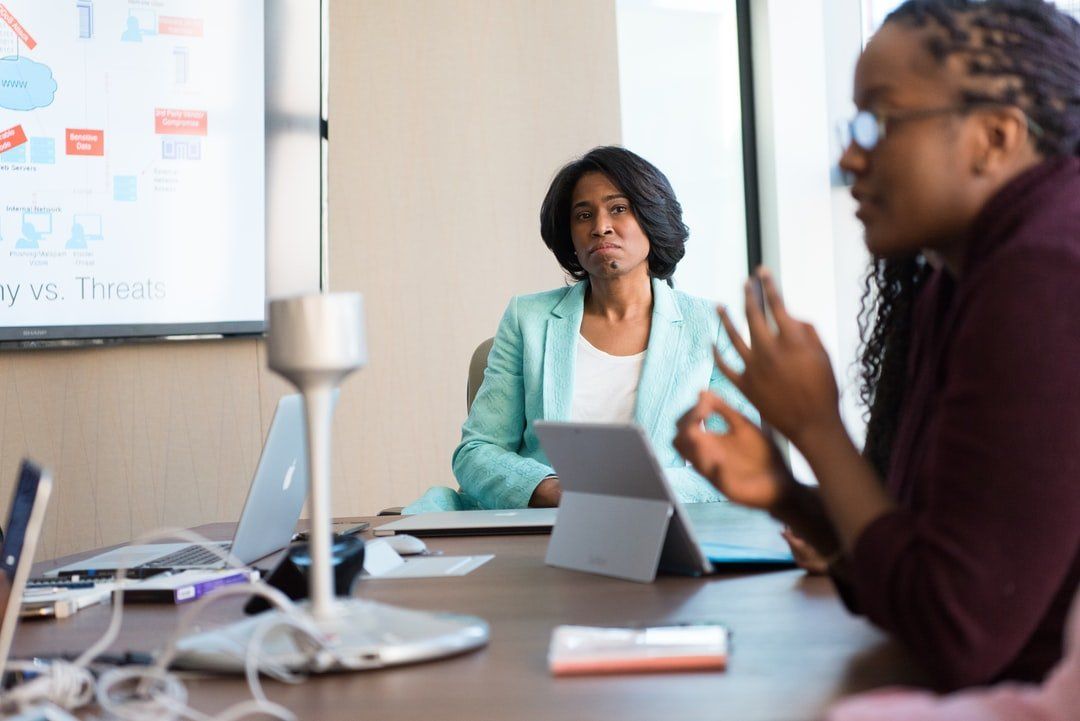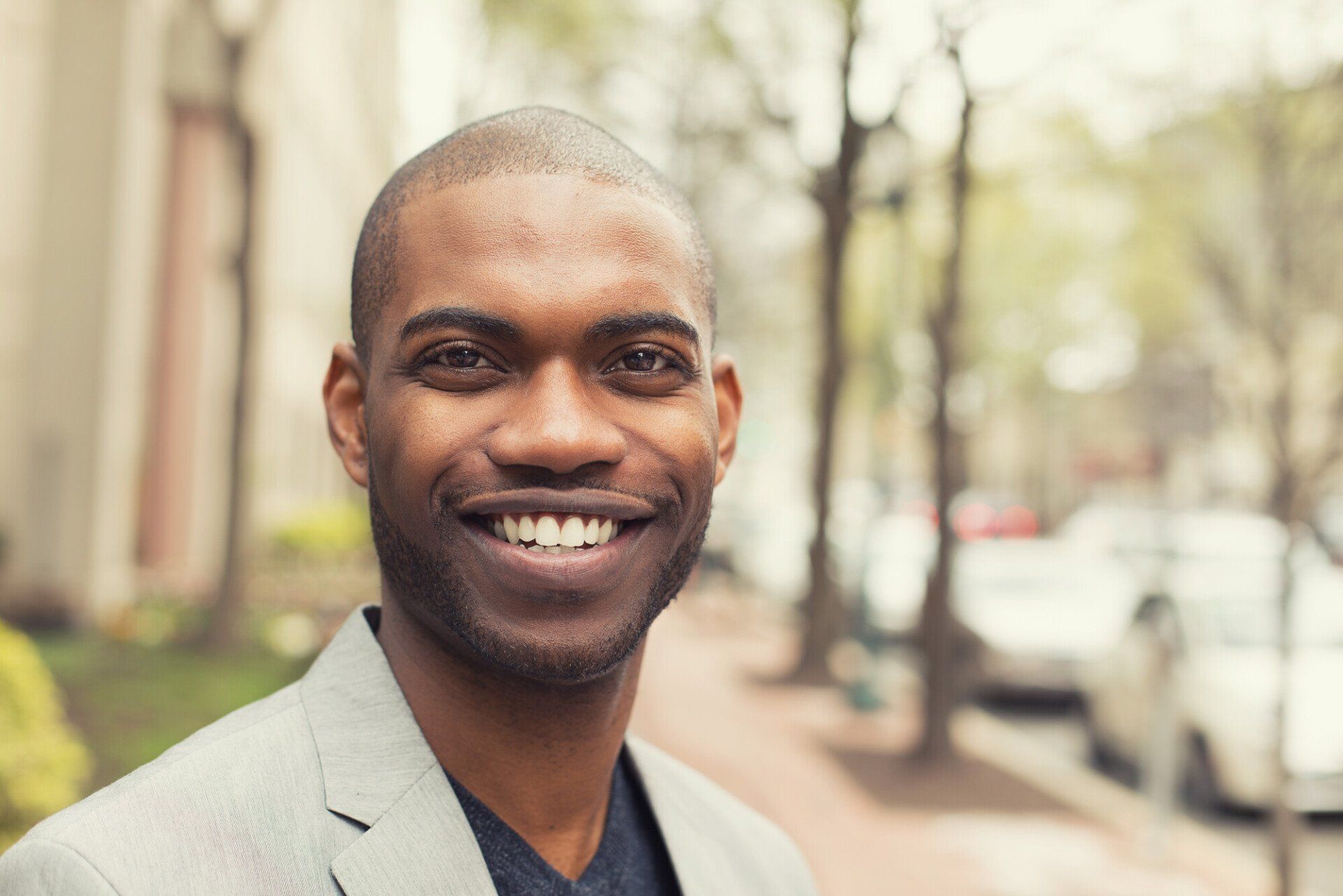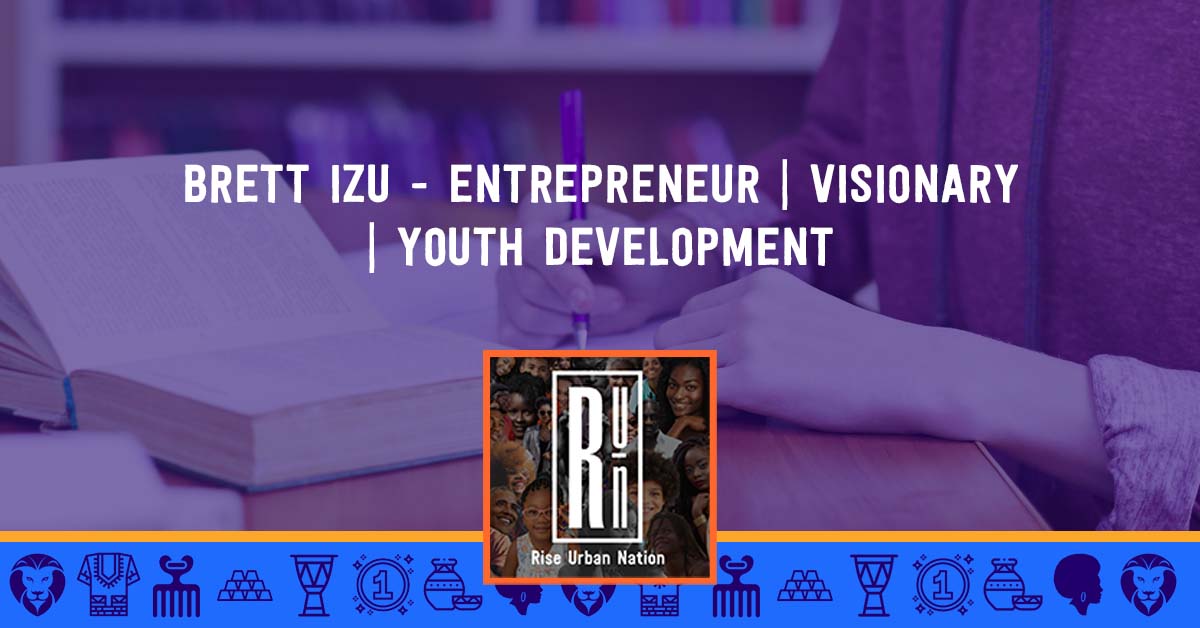Meri Birhane - Entrepreneur | Tech Sales & LinkedIn Expert | Empowering Diverse Founders & Business Leaders
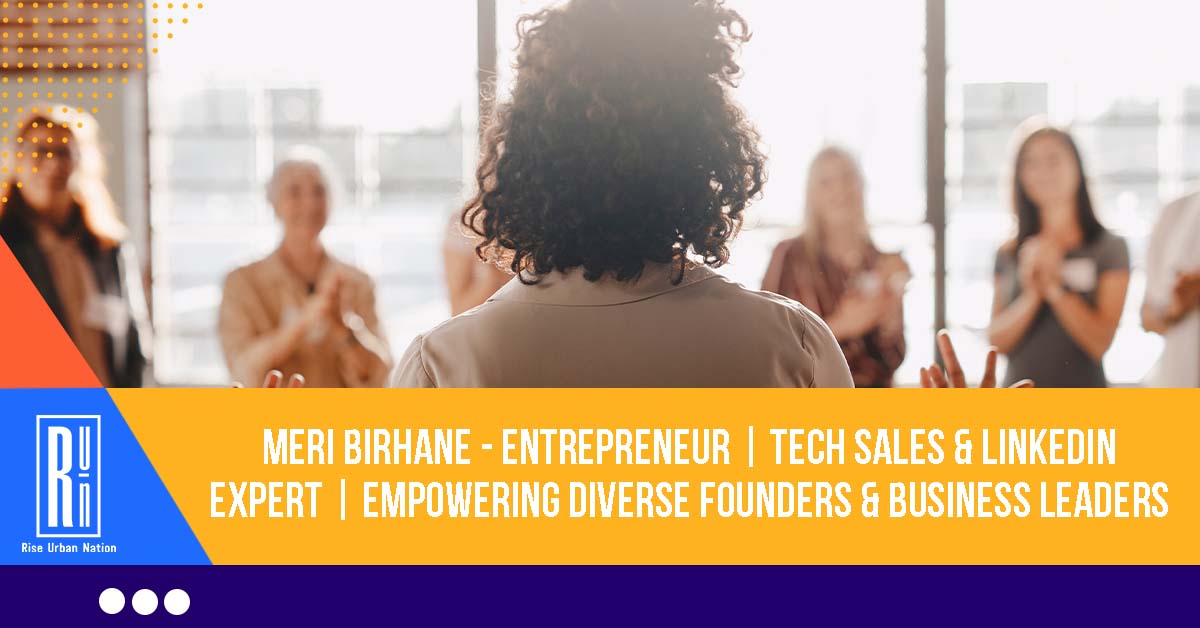
How do you empower diverse business leaders? Leadership and learning are indispensable to each other. To be able to lead a multitude of people, one has to be open to learn and relearn things. Today, Meri Birhane, Bill Gates Millennium Scholar and finalist for the 2021 Black Owned Business of the Year Award, sits with Taryell Simmons to talk about how she empowers business leaders to best utilize their skills and resources. Ms. Birhane has been successful at building and leading organizations such as the National Society of Black Engineers and founding the Empowerment Mastermind. She founded the Meri Consulting Services, a woman led firm, that helps tech companies and sales reps book more meetings and have more engagements. Ms. Birhane is a rising star in her field and has received recognition for her leadership in sales and is frequently requested to coach and mentor sales teams. Listen in as Meri discusses the leadership strategies she uses to empower diverse founders and leaders in the business.
To learn more visit Meri Consulting Services and follow @mericonsultingservices @empowermentmastermind on social media.
Email: meri@mericonsultingservices.com
Website: www.mericonsultingservices.com
Social media: @mericonsultingservices
Linktre.e: https://linktr.ee/MeriConsultingServices
Empowerment Mastermind (meet every 3rd Wednesday at 6pm PST via zoom.
https://linktr.ee/empowermentmastermind
We are currently surveying our listeners (or viewers) to learn more about you. Please take a few minutes and visit our website and click on the 'Listener Survey' link found on the home page. Thank you."
http://survey.podtrac.com/start-survey.aspx?pubid=ON_VODqpc104&ver=short
---
Listen to the podcast here:
Meri Birhane - Entrepreneur | Tech Sales & LinkedIn Expert | Empowering Diverse Founders & Business Leaders
Welcome to another episode of the show. This next guess is quite intriguing. I've never met anybody so vibrant, humble and full of joy. Her journey into entrepreneurship is a fantastic story and testament to hard work and humble beginnings. Meri is a Bill Gates Millennium Scholar. She has already won several tech competitions in San Diego, everything from the ZIP Launchpad Startup Pitch Competition. She won that.
She placed third in the Lavin VentureStart Competition. She won one with Union Bank and even got the Audience's Choice Award for that. She has been featured on a couple of different news channels and articles out here in San Diego. She's making a wave and a name for herself. I'm happy to be an acquaintance with her. Without further ado, I'll give you Meri.
---
Welcome to another episode of the show. I got a special guest. Meri, how are you doing?
I'm doing great. Thank you so much for the opportunity. I love talking to you. I feel like we have a lot in common.
We will take it wherever it goes. For the people who don't know you, I'm going to ask you a deep question. You could go how deep you want to go or keep us served. I'm going to let you decide. Who is Meri?
I'm a sister. I have two older sisters. I'm a daughter, child of God, and entrepreneur. I'm persistent. I'm a survivor. That's who I am. I also have a silly, goofy and playful side, but when it comes to handling things, I could be type-A. On hanging out and if I want to have a good time, I could let loose.
I had an a-ha moment. I was like, “She looks so familiar. I know she knows Sola, but I feel like I know her from somewhere.” I realized we have been at some of the same spaces, although we have never met like Connect All. My boyfriend, Greg, told me about you because you did an article in the San Diego Business Journal.
I was nominated for the 2021 Black-Owned Business in San Diego. I was a finalist.
Congratulations. How did that come about?
I have no idea. It's so crazy. In December 2020, I won the Connect All @ the Jacobs Center Cohort 3 Startup Pitch Competition that Union Bank and Connect All were hosting. At that time, I was grinding so hard right before that. I remember some personal issues that happened where it was difficult to continue. I'll talk about that later. Luckily, through the support of the Jacobs Center and the friends in my life, I was like, "I got to do this pitch competition." I somehow got it done. It's all a blur. I won Audience's Choice for my pitch. It's the pitch that I was struggling to even record at the time. I won that.
I got 700 votes and 2,100 views on YouTube for my pitch. I won second place in the competition. I got a $5,000 grant and I thought that was done. I was like, "We ended 2020 right." With all the craziness and shenanigans that were happening in 2020, I was like, "I'm done." Miraculously, in January and February, I got all this media interest in the fact that me, Jasmine, and Anahi from Worthy Picks. I want to represent Jasmine, too, because she's the CEO of the STEAM Collaborative. We won this award and I won it for Meri Consulting Services, my consulting company.
We got so many interviews from KUSI, CBS 8, and Union-Tribune. I was in articles and the San Diego Magazine. It kept going. It was a story of when you want to give up, don't give up and push through. If I gave up in November of 2020, then I wouldn't have been here and got all of this recognition and having a feature in the San Diego Business Journal for a company that I launched full-time in March 2020. That was my story of like, "Don't give up." I don't know how it happened. It might have been from the hard work before November 2020 because I was exhausted at that point in November.
Let's say the ancestors were looking out for you. It's like, “You've been who we're waiting for. We got to push you through this door, even if you're going to go kicking and screaming.”
The tough times only make you stronger. They prepare you and build you to overcome your next breaking point.
That's how I met Adesola. I was the Vice President of NSBE Entrepreneurship for about a year. All of 2020, I was hosting those virtual events. We were using my Zoom account and I was doing the breakout rooms. I don't know if you remember me, but I was the host going, “Hold on. Let me figure out this breakout room situation.” That's pretty much it. We were doing in-person meetings all through 2019. 2020 happened and then we had to move to a virtual platform.
By September 2020, I spun off and created my mastermind group. We have 160 members on LinkedIn who joined the Empowerment Mastermind. You can find that at @EmpowermentMastermind. It has been a journey. I host CEO panelists and similar to what you're doing, I get to hear these stories from diverse founders who break down the secrets, whether it's marketing tips or their entrepreneurship journey. It has been pretty cool. I had a nice opportunity because I was in the corporate world for about five years in the IT world.
I had a lot of relationships, so I never ran out of executives to reach out to. There was always someone willing to volunteer their time to share the gems of running a business and negotiating salary. We had top companies and organizations like the CEO of the Asian Business Association and Crow Holdings, a multibillion-dollar real estate firm. The CIO or Chief Information Officer came to our session and then broke down some things for us. That was pretty exciting.
What I love most about your press run is that in the San Diego Business Journal, they told a little bit about your backstory and your journey here. Could you share a little bit of that with us?
That's so crazy because that was the first time I ever stated about my journey and the hardships that I went through. I came to San Diego as an immigrant and struggled. We were poor, but my parents did a good job or I didn't know we were poor. We didn't have food some of the days, so we ate rice or whatever we were doing. My dad was always an entrepreneur. He was always fixing cars outside. He was a mechanic in Sudan. He was successful in Sudan and pretty wealthy there, but we had to flee from the war in Eritrea against Ethiopia, and there were issues in Sudan.
We came to the US as refugees. We stayed at a refugee camp and everything. I came to the US and went to Roosevelt San Diego High. These are inner-city schools. Half the students were failing in that high school, but my mom instilled education. I ended up getting a full scholarship to UCLA for undergrad and then grad school. It was an all-encompassing scholarship. There's another moment of, "Thank God I did that," because I didn't even know it was going to set me up years later. I remember my dad telling me like, "We can't afford college. You better get good grades or you're not going to college."
I remember that junior year I was freaking out and working hard. My dad gave me some money, but I saved money for prom and senior pictures. It felt like we were always struggling. I also grew up in a single-parent household. It was my two sisters and me. It was survival mode, pretty much. I don't know if you've experienced this, but African moms put a lot of pressure on you. It was always like, “You're the reason we came to this country. You better do well and help us.”
It was ingrained in me to one day be able to buy my mom a house. My sisters and I had the opportunity to do that in 2018. We got her the house she had been telling us about. That was a great experience. I moved into a new condo. This is where I'm at. That also happened in 2021. There were a lot of rough times and eventually, that rough time pays off as long as you're diligent. I have my faith, too, so I'm always praying to God. There are fun times, too, in between those stories.
The tough times only make you stronger. When you get to that breaking point for the next time and you have all these deadlines for the pitch competitions, press runs, getting a funding venture together, or whatever the next future thing is, it builds, preps and primes you for that. I appreciate the tough times. I love the backstory because sometimes, what I come across is people become victims of their circumstances.
I was one of those people. I see it happening in the communities that I go back and try to help and that's why I like giving the backstory. They say, “This person didn't come from a silver spoon like you may think when you see them where they're at without knowing the backstory.” There was a beginning somewhere and it's not always about where you start. It's about the journey and where you end up. You had a lot of different jobs and this is a long setup to the question.
You did everything from sales development representative to account executive to CEO. What I want to know is what was your first job. Here's the reason for that because a lot of people think that, "I can't take a job that's going to mess up my career. I'm not going to learn anything from that." There's something that you can learn from your first job that you can take away. What was your first job? What was one thing that you learned from it?
I had a job with my dad, but I'm not going to count that because that was him trying to get me to earn the money he was paying me. I had to go to his shop every Saturday. I wasn't doing anything, but he wanted to make me feel like I was earning money. My first job was in the UCLA Hospital. This is a good story. You reminded me. This was 2008 during the recession. I graduated from UCLA for undergrad. This is the dream my mom has been telling me, "Go to college. Get your Bachelor's degree. You're going to make a lot of money allegedly."
In 2008, it didn't matter who you were. There were no jobs. What I did was I got a two-week temporal at UCLA Hospital through Manpower. Every day I was going to this Manpower lady, giving her muffins and telling her, "Please call me if there's a job," because there was no job. At that time, it was between staying in LA or coming to San Diego because I had no job. I had a boyfriend at the time and he was like, "If you move, we're over." He wouldn't have done it now, but in hindsight, he wouldn't have done it. I was like, "If I move, I'm not going to be with this guy. Let me figure this out."
 Empower Diverse Business Leaders: It's usually the people who couldn't do it or haven't done it who are telling you that can't do something.
Empower Diverse Business Leaders: It's usually the people who couldn't do it or haven't done it who are telling you that can't do something.I ended up getting a two-week temp job at UCLA Hospital. They loved me so much that he extended it to two months. I got a full-time job right after that and found a department that was open. That job is the reason why I went to grad school because the job was so rough. No knock to UCLA Medical Center, but we had to answer 100 patient calls per day. We were doing lab results and they were always angry. It wasn't an emergency room. It was internal medicine, but the patients were always angry and I would always try to go above and beyond for them.
That taught me customer service and I ended up getting into grad school. I was an assistant to three doctors. It was three doctors and it was a call center. I remember I had this hard-ass doctor, Dr. Greenberg. Dr. Greenberg was so tough because he didn't like it if you messed up. Everyone would tell me about him, but I liked his style. He knew what he wanted, so I got it done. I remember for Christmas, he got me a scarf. One of my friends was like, “He never does that.” When I ended up telling him I was going to go to grad school and leave, he was sad about it.
He wrote me a letter of recommendation for the Public Health school. That was my first job. It was a lot. I remember they had a cowbell and they would be like, "Get on the phone." They called it the queue and they would say, "You are on the queue too much." You have to register them real quick and do all their health insurance. It was a lot of pressure. Do you know how sometimes in offices, people don't like each other? We tried to help each other because we knew this job was hard. There was never an office drama because we were all focused on work.
You had a great call center job because I've been in a couple of call center jobs and I don't remember all the employees banding together. It was every man for himself.
In that job, we banded together because there was no time to start trouble.
Shout-out to Dr. Greenberg. You made Meri a better consultant and gave her a lifetime lesson that traveled with her.
He's cool. Everyone was cool. All the doctors were cool. When I was in the degree mindset, that mindset changes later in life, but at the time, I was like, “Maybe I should go to grad school because my boss had a Master's in Public Health.” He oversaw multiple departments in that hospital. I was like, “Let me see how I could get to that position.” I know he had an MPH, so that led to that. At the time, I had deferred that scholarship, so I had one year to decide, “You either go to grad school or you lose the scholarship.” At the time, because I was only 21 or 22, I figured, “It's not going to hurt. Let me do it.”
One year into the MPH program, that's when I realized, "This is not for me." I applied to the MBA program at San Diego State. Once my MPH program was over, I started that summer my MBA degree at San Diego State. That experience was super crucial for me because that's when I joined my first business accelerator program called the ZIP Launchpad. That's where I got to meet all these entrepreneurs and pitch. This was before I had my Connect All experience. That experience helped me because I also won second place in their competition. It was $5,000 or $2,500.
It's not always about where you start. It’s about the journey and where you end up at.
You're the second-place queen. In every competition, you're in second place.
I'm like, "Why am I in the second place?" I also got Best Video. They always liked my pitch or concepts. I won third place at the VentureStart Competition. I remember I was so nervous. This was before I won second place. The third place taught me to speak up and be confident. I did a whole bunch of things outside of my comfort zone. I did all these things because it was my second Master's degree.
I was like, "At this point, who cares? Network and do all the things you want to do." I told myself this mantra every day, "Whenever I would get anxiety, I would go think about what President Barack Obama is dealing with right now." I told myself that I would go into business school every day because it was intimidating. It was weird because I went to UCLA for grad school, but in San Diego State, maybe because of its semester system, these classes were long.
You had to do a whole bunch of things I didn't do at UCLA, like take quizzes and all this stuff. I would get nervous going to class. The second year was super easy, but the first year was a little challenging. On top of that, I was doing a lot. I was the marketing person for the Graduate Student Association. We would host these mixers. I tried to network and meet as many people as I could.
Here you are. I would have never guessed that you get nervous public speaking or around people, because you seem like such a natural at it every time I've seen you and now in this scape. Are you an introvert or an extrovert?
I'm an extrovert. In my MBA program, we do presentations and I remember I would purposely take off my glasses so I wouldn't see the audience and do my presentations like that. I'm an extrovert, but it takes a lot of energy. You have to pump yourself up. That's a lot of energy. I don't care how much I love talking to people. Even in the KUSI interview and the CBS 8 interview, I was so nervous, not necessarily when it got recorded, but after, I was like, "How am I going to look in this?"
“The whole world is about to see me.”
I'm going to tell you one of my weaknesses. I say, “um,” a lot. I remember I felt bad about that. I would try to change it and it would take a lot longer than I wanted to change saying it. I watch CNBC. Do you know the guy that does Mad Money? That guy says um 24/7. Every word is an um. I'm not perfect, but I'm going to get out there and try and get my message out. That's the best I could do. I could improve and I should work on my public speaking more.
You can always improve. I say um a lot too. I remember listening to my first couple of episodes. I was like, “I say um a lot. I need to figure out how to change that.”
If you have a script, you could change that. It's just not going to be as natural.
I don't want a script. I want a natural conversation like we're in the flow because I want them to feel like this is a real conversation. It wasn't scripted.
That's what I realized. If you watch those YouTubers, they're reading something. That's why it sounds all good. It has been edited.
We do some editing but not too much where it sounds stale and cold. You've had a vibrant career in life. What would you say is one good life lesson that life has taught you?
 Empower Diverse Business Leaders: What is meant for you is meant only for you and the vision is only going to be sent to you. So, you have to act on the vision because you’re the only one who can.
Empower Diverse Business Leaders: What is meant for you is meant only for you and the vision is only going to be sent to you. So, you have to act on the vision because you’re the only one who can.I'm going to read a quote on this one. I'm not sure if you're familiar with Lisa Nichols, but she said, “Don't share your million-dollar dreams with dollar thinkers.” It pretty much means in your life, you're going to try to share your ideas with people and they might persuade you otherwise. I have a whole bunch of stories of this. I was talking about this. I was studying Psychology at UCLA. I had a professor.
Believe it or not, he was Afro-Panamanian, so I felt comfortable with him. I'm like, “That's cool.” He's the first Black professor I've seen in a while. I went to his class and I would do office hours with him. I knew this other graduate student. She was Black and super cool. She was like, “Meri, you could get your Master's in Psychology.” This is in undergrad, not grad school.
I go to the Panamanian professor and tell him, “I was talking to her. I love that lady. I want to be like her.” He was like, “What's your GPA?” He crushed my dreams and was like, “You can't be her. She's amazing.” I was like, “I've never heard that before.” He was like, “She's amazing. Don't you know who she is? That's not going to be you.” I had that experience before, but it was a while. It's like when you don't experience something in a while and it throws you off. I pretty much didn't pursue Psychology for my Master's because of what he said.
It was pretty crazy because I got into the public health program, which is top ten in the country, and I got into UCLA for that program. I could have done whatever I wanted to. When someone tells you it can't be done. Sometimes it makes you not want to put in the effort. From that point on, whenever I had a goal or want to do something, I always ignore the naysayers. Everyone's going to tell you it can't be done because either they're lazy to do it or they don't believe in you. It could be done. When I got into UCLA for undergrad, they were going through some stuff.
It was 2004 when I got into that program. The people were on waitlists. It was the lowest admittance rate. There was a lot going on. There was 0.1% African-Americans accepted to UCLA or Black people, not people of color because there are a lot of other minorities at UCLA. I could have taken those stats and went, “I'm not going to get into UCLA.” My classmates also told me, “You can't get in.” I've also had counselors in high school tell me I couldn't get in. Something happened in college because I felt like an imposter in college. Anytime I heard something negative, I went with it.
I feel so weird in college because I was in inner-city schools and then you threw me in Westwood in LA. Everyone's driving Beamers and Range Rovers. There are so many White people. It threw me off. Everyone spoke so eloquently, so I was intimidated in a discussion. To talk about public speaking, I did not want to talk. I purposely picked classes where there was no discussion. If there is a discussion, I'm not in that class. One day, I started looking at my classmates and going, "English is their first language in their home. Their parents debated with them and talked to them, whereas you're not debating in my household. You're talking."
It's like, “Be quiet and do your classwork.” Once I realized they were good speakers and their grades didn't reflect how well they were BSing pretty much, that's when my life shifted. I realized there are a lot of people in the world that are going to talk the talk. There are only a few people who are going to grind and make it happen. Fortunately or unfortunately, I've always been the grinder or hard worker. One way or another, I'm going to go up. That's my lesson. I'm thinking of Will Smith's line, “If you have a dream, you got to protect it.”
I realize why you're friends with Sola. You’ve got that same mindset like, “I'm not about talking. Let's do action.”
I love action. I can't sit there with people talking. I'm not a fantasy girl. I'm more of a, “Let's do it.”
Another thing that resonated with me is that you mentioned that sometimes when your naysayers tell you that you can't do something, they say they can't do it. I remember a clip from one of the Jay-Z bio docs where he's talking about when he first sold his first 100,000 records. His uncle was talking to him and he's like, "You think you're big-time now because you sold 100,000 records, but you will never sell one million records." He goes, "I sold 1 million records 1,000 times."
It's usually the people who couldn't do it or haven't done it who are telling you that you can't do something. That's a quote from Will Smith, “You got to protect your dreams.” You can't listen to the naysayers because what is meant for you is meant only for you. The vision is only going to be sent to you, so you have to act on the vision.
Whatever their vision is and what it was meant for them is meant for them and they have to act. It's hard for you to ask somebody else for career advice or advice about what you should do with your life because they don't have your vision and can't see it from your vision. You have to create the vision yourself and get the tools that can help you create it.
In that same line, he was referring to when you look at people and go, “Should I do X, Y and Z?” Those people are not even qualified to even help you with that. Not to knock my parents sometimes, but they're telling me about wealth, but they haven't acquired wealth at that time. All they're doing is the best that they can. All you have to do is search within, get good mentors who are a couple of steps ahead of you or more, and then follow that path. Everything you need is in you.
Don't share your million-dollar dreams with dollar thinkers.
What I've been doing during this quarantine is finding out who I am and what I like to do now that all the distractions are shut off. There are no bars, friends, restaurants, happy hours, and the things that we leaned on in the past. I'm a social person, so I would take out clients. Sometimes my clients are my friends because I was working so much in sales. I would go meet with my clients and feel great because not only did I help my client, but I got a sale.
There was always external stuff making me feel good, like going to the gym. There were things that I did. With the quarantine, that's when it was like, “Crap,” especially if you're an extrovert. That's freaking torture what we're going through for an extrovert. I've talked to other people and they're depressed. I had dark days, too, but it wasn't because of the quarantine. It was other stuff. Everyone is struggling. I try to take it to the basics and what I like to do.
I like to play basketball. I'll make time to play basketball. I like beach volleyball. I'll make time to play beach volleyball. Take it way back. It has been an interesting experience and being okay with being alone. Introverts won't get that because they're already alone and in their rooms a lot or doing stuff solo. I grew up in a household with sisters in the same room. I didn't have my own room until I went to college. Even in college, we had to share.
I didn't have my own room until I left undergrad. It was a lot later. I was 23 or 24 when I had my own room. Going from always being around people to people who could get you sick is pretty crazy. There's a lot of us that are like, "I'm going to bite the bullet and expose myself because we want that connection so bad." I feel like even the most introvert risk-taker is like, "Everyone is sick. I'm not even going to risk it," which they shouldn't, to begin with.
They doubled down on that like, “I'm living in this bubble.”
I'm more of an introvert because I'm not talking to as many people as I used to.
I have a feeling you found new ways to talk to people through these masterminds. You're talking to people, but it's a different type of communication.
The mastermind is every third Wednesday. I'm always prepping for that and I have volunteers that help with that. Shout-out to Nathan Dean, Chris Mavry, Veronica Jones, and Betswan Birhane. Those are the people that help with the mastermind. It has been great connecting with people on that level. I created a loophole for myself.
I love the fact that you love basketball because I do too. We might have to do a pickup game when we ever get back to people congregating again.
I'm pretty good with my shot. I got to work on my layup. That's why we say no layups when you play against me.
We will have you over the quarter like Steph Curry.
I love playing at the courts by the beach. That's my favorite.
I haven't played over there in a while, but I love that too. We could get pickup basketball over there.
 Empower Diverse Business Leaders: It's hard for you to ask for career advice or advice about what you should do with your life from somebody else, because they don't have your vision and they can't see it from your vision.
Empower Diverse Business Leaders: It's hard for you to ask for career advice or advice about what you should do with your life from somebody else, because they don't have your vision and they can't see it from your vision.There are a lot of people. There is this influencer. Do you know The Professor on YouTube?
I remember The Professor. Is he out there?
He was there and I was like, “That's crazy.” Everyone was recording him. I didn't know who he was until after. People were recording him doing something.
He was from the AND1 tournaments. He's still popular.
He has an interesting journey too. He had it rough, then he found God, and YouTube helped him with his career. He was broke for a long time, based on the documentary that I watched. I was like, "Who is this guy?" I watched that.
I didn't know that, but I'm about to watch the documentary. I remember him from the AND1 tournaments. They used to pick on him a lot in the beginning. He was showing people up. I was like, “Look at this little White boy.”
He was obsessed with basketball in high school and he didn't get into college for basketball. He was crushed because he would spend so many hours. He went to community college and didn't get anything out of it. He discovered this AND1 thing at age eighteen. He killed it and they had him on tour. There were more stories about him, but he was an underdog. I love those stories and hearing about people who don't give up.
They keep fighting for their dreams. Let's talk about some more strategic steps to how you got to where you're at. Somebody is reading this and they're inspired by, "I want to know how do I get into the tech space and consulting? I like some of what she has done in her career." It's what, when, how, where and all that good stuff. What's some advice you would give to someone who would like to start a career in your industry?
I got into sales first. My mentor told me that you could do anything if you conquer sales and master sales. That was my mentality. I worked at a couple of sales jobs. One was super hard, but that sales role helped open up the doors for me for other jobs because they trained me so much. If you could, find a company that could train you and put that pressure on you because that's what happened. I had to make 75 dials and book 10 or 11 meetings a week. It was challenging and I won't lie.
I lasted at that job for about eight months before I quit. The turnover rate was three months. It was a hard job. I pretty much would come home sad. I feel like there were nights where I was crying. I remember my sisters would be like, "Why are you doing this job?" I was working until 10:00 to 11:00 PM and trying to get a sale. If you could find an in-between job like that, maybe not too extreme where you're getting beat up every day.
A lot of people would hang up and I didn't realize all my coworkers would call the same people. I didn't get that. It would be frustrating. You're calling people that ten other people have already called at your company. That was the company's model. It was to dial as many times as you could until something stuck. There's a place for that, but I wasn't into that. I got hung up on. It was difficult. That's when I discovered LinkedIn. LinkedIn helped me avoid the calls. At the time, my bosses would be mad because I would be on LinkedIn instead of making my calls. It was one of those open floor plans. There were 80 employees and you could hear everybody's conversations.
For me on LinkedIn, it was obvious. We all had headsets. It was like a call center of outbound calls. They would tell me, "Meri, get off of LinkedIn. Make your dials." I was booking eleven meetings a week and I would win. They would give us jerseys if you won that week and I would get most meetings because I would book it all through LinkedIn. I got into the LinkedIn training space because of my experience doing that. I would recommend picking a job where they're going to train you on the foundation and basis but don't be hard on yourself. What I did was after that difficult job, I worked for a company with 70 employees right after.
That was my fit. I figured out I don't like to be the small fish in a big pond. I like to be the big fish in a small pond. It's a smaller firm and in that firm, every time I booked a meeting, they were so excited like, "Thank you, Meri, for this meeting." I'm like, "We're at that place." With one meeting a week, you would be a loser because it was one of those cultures. They would put your rankings on who had the most meetings and calls. You go to the kitchen and because it was a big company, you're on page 30 at the bottom. It didn't make you feel good. With this company, anything I did, they were excited, and with 10 to 13 meetings a week, they loved it.
You should always ignore the naysayers in your life. They only believe it can’t be done because they’re too lazy to do it.
Once I discovered I'm good at booking meetings, I got a promotion and then became an account executive, which means you do the full sales cycle. You're not just booking meetings. You're meeting with clients, doing presentations, helping create the proposal, talking to legal, doing red lines, closing the deal, and onboarding the client. I got a chance to learn the full sales cycle. I did that for a year, got promoted to it, and went to another company. They paid me way more money than that because now I have the reputation of, “I've generated X amount of revenue.” It's all on LinkedIn. You could see how much money I've generated.
Once you go to a company and go, "This is my success," then it's a lot easier to negotiate your salary and terms. Early on in my sales job, I wasn't getting commission because they told me, "If you're new, you don't get a commission." That's not true. If you're getting into sales, read and understand the contract and then apply to other jobs and read their contracts to determine the industry standard. I recommend that, especially being a person of color and you have to negotiate your salary. It's pretty tough and nerve-racking, especially if you need the job. It's hard sometimes to be like, "I don't want this job."
For those of you wondering, she has generated over $3 million in products and services in sales. She is the truth. What would you say to that one person, "I'm sitting at my cubicle? I've been in sales for a while now and I'm ready to make the jump and transition. I've made a name for myself as you did. How do I go from the sales job to an account manager job and start my consulting services?"
I always recommend that if you can, do it while you still are employed. In 2017, I launched my company, but I only had two client gigs. I generated revenue quickly, but at the time, I didn't process what I was doing I could get paid for because my trajectory at the time was I wanted to be a VP of Sales at a company. I was trying to work hard to be this VP of Sales that I always seemed elusive. You know how management is. They have their reasons. I also come off younger than I am sometimes or young-looking. I forget that I am. I feel like there are barriers there. I didn't get a lot of opportunities.
One day in March 2020 was the day I decided to go full-time doing my own thing. I was able to generate $9,000 to $10,000 a month during COVID. I was like, “If I could make sales during a pandemic, I could do it.” I wouldn't have known and had everything together if I hadn't planned a couple of years and got my business entity done. I had all the templates I needed and all the emails. Pretty much, I had the structure ready. I sell sales playbooks and I had the bones of what this playbook would look like. When I would meet with a client, all I had to do was customize it. It was a lot less work.
I would highly recommend getting ready, preparing yourself, talking to clients or whatever you're selling, and learning a skill. When you think, "I could monetize this," and you're getting good feedback from those customers, then you should pull the trigger and go full-time. That's what I recommend because I don't recommend jumping into something when you're not ready and prepared. There are two schools of thought. That's my personal school of thought. You could do it any way that you want.
It's because of my experience of people telling me it can't be done that when someone comes to me and has an idea, I usually try to figure out how it could be done and I would talk to them based on that. If anybody's interested in talking with me, you can email me at Meri@MeriConsultingServices.com. I could give some tips based on that. I do recommend doing the side hustle thing and seeing if you're generating revenue. If you're generating revenue, that's an indicator that this is going to work. That's what I would do.
What do you think the future has in store for your industry when it comes to service business consulting, especially when you have this nice little niche of helping sales reps book more meetings, sell, process, and audit recommendations?
There's going to be and there already is a lot of automation. I teach clients how to properly message LinkedIn and connect with prospects. I walk them through a nine-week course of doing that. There's a lot of automation. LinkedIn has plugins where you can purchase software and it will automate the messaging scripts. You will get the messaging script from me or create it yourself, plug it into the software, and automatically send customers the messaging. It's similar to HubSpot but LinkedIn-specific. When the customer does an action like a reply, then you could reply to it as a person.
There's more automation and a lot of these chatbots and B2B lead generation software that I talked about. I know analytics is something people are always talking about. I could see that happening. For consultants in my space, there's a lot of training videos. Instead of doing one-on-one, you could scale it a little bit more. I'm working on moving from one-on-one consults to automating my consultation for my business. That's what I'm working on. That will free up so much time too.
The biggest thing you could do in business is getting more time back and automate it. That's the way to streamline your business and make your business more successful. I'm going to have you come back to do part two because we didn't get to talk about a lot of stuff. For now, what projects are you working on? Where can people find you?
I'm training a VP of Client Relations at a real estate firm. We're going through a LinkedIn training course. It's the one that I mentioned. We're at week eight. I'm also working with a bank and helping them with their LinkedIn training. I'm moving towards staff training and teaching folks how to utilize LinkedIn to optimize their profile and get more leads.
Those are pretty much the projects I'm working on. I also work with IT companies and create them a sales playbook. We're in talks. That should close soon. With the company in San Diego, it's an IT provider. If you're interested in any of those services or connecting with me, you can email me at Meri@MeriConsultingServices.com or follow me on social media @MeriConsultingServices.
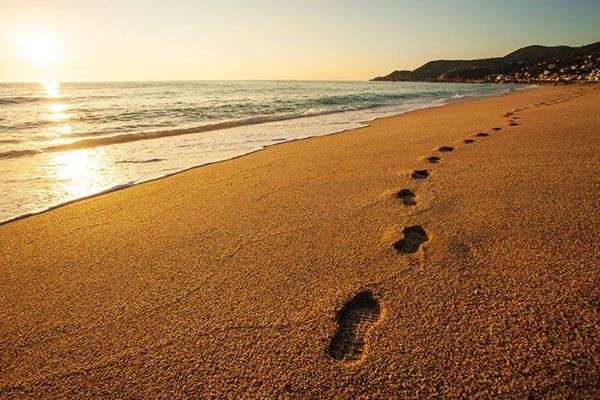 Empower Diverse Business Leaders: Everything you need is really in you. All you have to do is search within, get good mentors who are a couple of steps ahead of you, and then just follow that path.
Empower Diverse Business Leaders: Everything you need is really in you. All you have to do is search within, get good mentors who are a couple of steps ahead of you, and then just follow that path.The Empowerment Mastermind is @EmpowermentMastermind. You can also find that on MeriConsultingServices.com/empowerment. That's the group you should attack. If you want to learn anything, it's free. There's a whole bunch of executives. Every third Wednesday at 6:00 PM Pacific time, join a mastermind session. There's always a guest speaker. We do breakout sessions. On our next one, we talked about work-life balance. If you want to network and have a cool atmosphere to talk about that, the session will not be recorded because we want this to be more of a laid-back topic.
You need to bring one of those onto Clubhouse. Are you on Clubhouse yet?
I was personally on Clubhouse. I was spending three hours a day on Clubhouse, so I had to stop by the first week of doing it. We have to connect on social media, but I was like, "Follow me on Clubhouse." I was so pumped about Clubhouse. I realized I was in that room for three hours because I like to listen, but I like to moderate. People would come into the room a little bit late into the session, so you have to start all over again. For someone like me who likes to talk, that was draining. It's not like, "Let's talk about movies." That's not what we're doing. We're talking about business and how to launch their company. People were asking for advice and it was three hours a day.
You can build some great business relationships and contacts there. It's the new LinkedIn to booking.
It is. I did notice a lot of people followed because I linked to my company's Instagram. I got so many followers. In that first week, I got 20 to 30 followers and it's hard to get followers as much. My company Instagram is going up based on the content and talking. We're toying with that. In the Empowerment Mastermind, we're going to have an impromptu one before we officially submit a Clubhouse because I don't want to submit a Clubhouse and then there's no one there to man it. I think the Empowerment Mastermind is a great way and Clubhouse is another platform, but you wish you could see the people.
I do wish I could see the people, but I'll leave it there for that. If you got so many different faces on a screen, I don't know how you would break that up. It would be overwhelming.
It's pretty much Zoom at that point. That's why people like it. They want to listen in, but I want to see who I'm talking to because I'm a social person. If it's a podcast, I don't mind when it's the experts. You got to wait three hours. I did that once. I waited 3 or 2 hours to raise my hand. I was so bummed because I wanted to talk to Grant Cardone. Right after I asked my question, Grant Cardone came into the room and I was like, “Dang it.” You get to see some cool people. I felt like I got it. It's trying to get you closer to those inaccessible people, but it's time-consuming.
There's no set formula to how you do it yet. It's one of these necessary evils.
I'm going too much into Clubhouse, but my target customer is tech companies. When you search tech companies, there isn't a category for that. I don't know if you've noticed. If you put cybersecurity in Clubhouse, they're not open yet. Once it becomes more relevant to what I do, then I could go in there.
Maybe you could be the person that launches it.
I did think of that too. It's going to take so much. We're going to go to Clubhouse. Maybe it will re-energize me again because I remember that week was crazy.
If you do, invite me to the space.
What's your Clubhouse handle? Mine is @MeriBirhane.
Meri, it has been a pleasure. I love hearing your story and all the great tips, advice, and inspiration you've given our readers. I would love to have you back again if that's okay with you.
This was fun and relaxing. Thank you.
Ladies and gentlemen, that's it for our session. There's no big sendoff. Join Clubhouse if you want to keep connected. Have a great rest of your day.
Important Links:
- Meri – Meri Birhane
- Connect All @ the Jacobs Center
- @EmpowermentMastermind - Linktree
- Meri@MeriConsultingServices.com
- @MeriConsultingServices - Instagram
- @MeriConsultingServices - Facebook
- @MeriConsultingServices - Linktree
- MeriConsultingServices.com/empowerment
- @MeriBirhane - Clubhouse
- https://Linktr.ee/MeriConsultingServices
About Meri Birhane
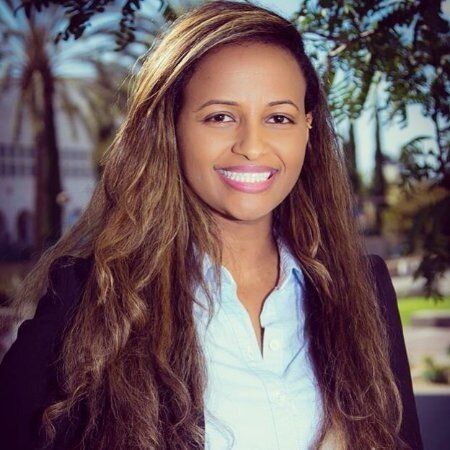
Meri Birhane is a Gates Millennium Scholar, holds two master's degrees and has a wealth of sales experience working in IT Managed Services, Cyber Security and Cloud Services. Ms. Birhane has been successful at building strong partnerships, providing sales and startup consulting services to businesses, and leading organizations. Her passion for sales and empowering minority owned businesses has driven her to give back to her community by providing free business resources.

